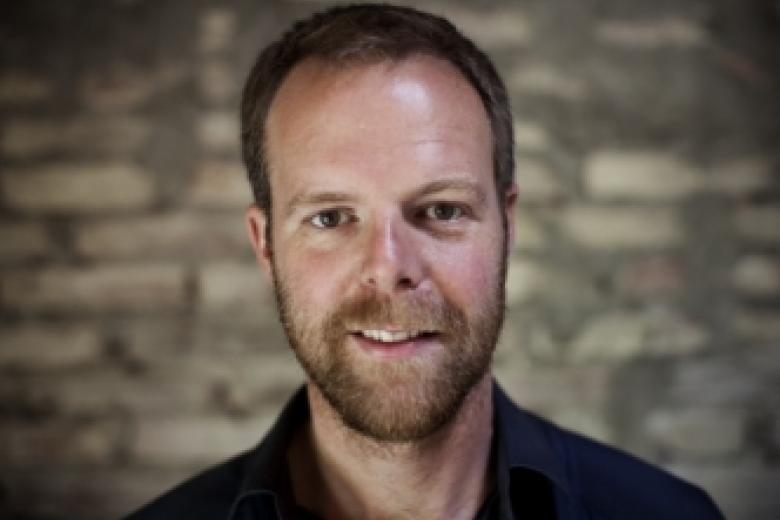Believers or box-tickers? How CEOs of Dutch companies talk about sustainability
CEOs of large companies work hard to make their business profitable. Yet they also face ever-increasing societal and regulatory demands to make the company more environmentally and socially sustainable.
Tereza Bauer interviewed fourteen CEOs of Dutch listed companies about their sustainability practices. This blog contains a list of nine examples of sustainability metaphors and expressions that were used repeatedly by the CEOs in the interviews.

Imagine you are the CEO of a large company. You are working hard to make your business profitable, but you are also facing ever-growing societal and regulatory demands to make the company more environmentally and socially sustainable. What would sustainability mean to you? Would you think of it as a burden, a moral obligation, or perhaps an opportunity for your business?
Chief executive officers (CEOs) are among the most formally powerful and publicly visible representatives of the companies they manage. They are expected to drive the strategic direction of the company and also to set the internal culture for its employees. Therefore, studying what is on their minds is important for understanding company decisions and actions – also when it comes to sustainability.
You and I could wish for all CEOs to be forward-looking altruists, pursuing the best environmental and societal impact possible. Conversely, we can get suspicious and accuse them of greenwashing, aiming to make their company look good but without care for real world outcomes. However, reality is hardly ever as clear-cut, as CEOs navigate the complex range of sustainability issues.
As part of my research, I interviewed fourteen CEOs of Dutch publicly listed companies about their sustainability practices. When referring to sustainability during the interviews, they often resorted to linguistic tools such as metaphors. Since metaphors serve to make sense of complex, multi-faceted concepts, identifying and interpreting them may help us understand how CEOs relate to subjects such as sustainability. The language they use can reveal not only the meaning it has for them, but also the underlying motivations which drive their (in)actions towards certain issues.
Below, I list nine examples of sustainability metaphors and phrases that CEOs repeatedly used in the interviews, along with possible interpretations of what these might say about their authors’ views on the topic.
‘Believing’ in sustainability
Several CEOs used almost-religious language when referring to sustainability, such as mentioning a need to believe in the importance of the subject and categorizing their internal and external stakeholders as either ‘believers’ or ‘non-believers’. Perhaps they think a certain amount of faith is necessary to work on sustainability topics, since the urgency to act is not obvious to everyone around them. The talk of belief could also imply that for these CEOs, sustainability is driven by internal values and moral obligations rather than external pressures.
Sustainability as ‘Box-ticking’
A number of CEOs referred to certain sustainability practices as necessary to ‘tick the boxes’ on an imaginary (sometimes even a real) checklist. This interpretation portrays sustainability as a set of standards, often externally imposed but not always seen as meaningful internally. At times, box-ticking was invoked with an undertone of frustration, suggesting that there was a discord between the requirements the company faced from societal actors such as governments or investors, and the actions which the company itself envisioned as leading to sustainability improvements.
Sustainability as a ‘Foundation’
Some interviewees defined sustainability as a foundation or basis for their business strategy and operations. They would express the ambition to integrate sustainability considerations into all company processes, and ideally into the very core of what the company is and does – to use a favorite phrase, to make it ‘part of the DNA’. While this holistic approach seems an attractive proposition, it also comes with the risk of spreading the company’s limited resources too thin as multiple initiatives are pursued. A broad scope of sustainability considerations often comes with an acknowledgement that these changes in company identity take a long time – after all, a foundation is not built in a day.
Sustainability as a ‘Game’
Some CEOs referred to sustainability with a vocabulary related to games or sports, where there is a possibility to ‘score points’ or ‘get to the next level’. This could mean that they view sustainability as an area of competition in which they need to measure up to or, even better, beat their industry peers. While this approach might be easy for businesspeople to relate to, it might also lead to the neglect of certain aspects of sustainability, especially where improvements are not immediately noticeable. It could indicate that the company is more focused on achieving ratings and recognition than ‘real world’ impact.
Sustainability as a ‘Journey’
Invoking the metaphor of a journey suggests that working on sustainability is a process that takes time. It highlights the ‘transformation’ aspect of the issue, bringing to mind images of overcoming difficulties along the way, as well as the importance of patience while taking things ‘step by step’. It could point to a need to phase sustainability initiatives over a period of time in order to balance them with economic considerations – but it could also signal a lack of perceived urgency from the speaker’ side.
Sustainability as a ‘License to operate’
This popular metaphor invokes the notion that businesses may operate only if they are accepted by the societies in which they are embedded. It is particularly salient among CEOs of companies that face public scrutiny for sustainability issues or controversies, such as high levels of pollution or dangerous working conditions for their employees. Making improvements on the company’s sustainability impact and communicating transparently with local communities may be viewed as actions towards earning that societal license. How exactly a company can know whether or not society has granted it is, however, not always clear.
Sustainability as an ‘Opportunity’
One of the most frequent views among CEOs was that sustainability presented a business opportunity to enhance sales growth or diversify their product portfolio. Many companies aim to position themselves as ‘part of the solution’, addressing sustainability issues via products or services – for example, by producing renewable energy or helping clients lower their greenhouse gas emissions. This win-win situation, a sweet-spot where the growth of the company is actually a positive thing for the environment and society, is, however, not always easy to achieve. Not all companies are active in a sector that works directly towards solving environmental or social issues – and even for those who are, not all sustainability issues that need to be tackled have the potential to improve the financial bottom line.
Sustainability as a ‘Risk’
For some CEOs, sustainability considerations pose a threat to their business or a risk that needs to be managed. It might be an immediate constraint to profitability, due to the costliness of sustainability investments, or a risk to the future survival of the company and its business model, due to being part of an industry which might (soon) be viewed as environmentally harmful or morally unacceptable. Finally, companies are also anticipating negative consequences of climate change, such as sea level rises or extreme weather events. While at the time of interviewing it seemed more ‘fashionable’ to focus on sustainability opportunities, attention to risks and constraints may re-emerge when environmental and economic conditions take a turn for the worse.
Sustainability as having a ‘Role in society’
This final notion, voiced by numerous CEOs, suggests that in order to call themselves sustainable, companies nowadays need to have a convincing reason for existence and show that they bring tangible benefits to society – beyond the traditional goal of shareholder wealth maximization. Given their resource consumption and the externalities they produce, some companies recognize that the ‘burden of proof’ is on them to show that the negative effects are more than counterbalanced by the positive contributions they provide – be it with their products, services or employment creation. This is also reflected in the lively contemporary debate on ‘corporate purpose’ among business leaders and academics. However, a limitation to the usefulness of this concept is that few companies can be said to have absolutely no purpose or role in society – otherwise they would have had a hard time finding paying customers to begin with.
Even though the expressions described above are just a sample of perspectives that company CEOs take towards corporate sustainability, their variety shows that the topic is not driven purely strategically or altruistically. It should be noted that there is not necessarily one ‘right’ metaphor– since sustainability is not a single ‘thing’ but a collection of topics, the same CEO might view one issue as a business opportunity but another issue as a tick-the-box obligation.
Finally, attention needs to be paid not only to the language CEOs use and the phrases they repeatedly bring up when talking about sustainability, but also to the concepts they do not mention at all. There remains a persistent gap between academic and scientific language applied to sustainability and that of the business world – for example, not a single CEO referred to ideas such as ‘eco-centrism’ or ‘de-growth’. While this is to a certain extent understandable and perhaps not completely avoidable, it is also a potential obstacle to meaningful progress on global sustainability issues. Finding a common language between societal sectors is a necessary part of successful communication and collaboration.
Also read
-
Christian Ernsten awarded funding for project on recurating colonial-era collections
UnRest focuses on the historically significant yet deeply contested archives and artworks associated with Robert Jacob Gordon (1743–1795) – a Dutch military officer and explorer whose documentation of the Cape region shaped European knowledge of South Africa during the 18th century
-
Milou: “Studying is still often a privilege’’
Even outside the lecture hall, law student Milou Scholten is committed to justice. As the chair of Students for Equality, she campaigns for accessible education and equal opportunities for all students.
-
Tanne van de Kreeke – a former lawyer turned epidemiologist
According to Tanne, a former lawyer and now part-time Epidemiology student, the quality of research in general would improve if more people had a better understanding of epidemiology and how the field relates to research methodology. Tanne is clear about the benefits of the master’s programme.